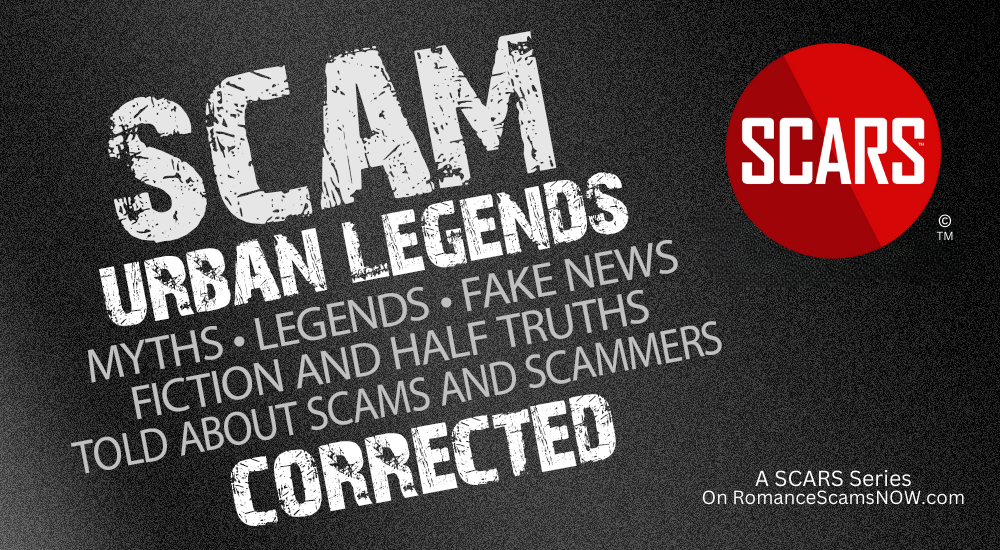Author:
• Tim McGuinness, Ph.D. – Anthropologist, Scientist, Director of the Society of Citizens Against Relationship Scams Inc.
Article Abstract
The urban legend that intelligence shields individuals from scams and fraud is debunked as a dangerous misconception. Despite the belief that intelligence provides immunity, smart individuals are often more susceptible due to overconfidence and lack of awareness.
Cognitive biases like the overconfidence bias and the rational actor fallacy contribute to this vulnerability, along with the Dunning-Kruger effect, where limited knowledge leads to overestimation of abilities.
Social media platforms further exacerbate the problem by providing fertile ground for sophisticated scams. Combatting this myth requires promoting awareness, education, and critical thinking skills through financial literacy programs, cybersecurity workshops, and scam awareness campaigns. Empowering individuals to develop skepticism, verify information, and seek advice from trusted sources can mitigate the risk of falling victim to scams, fostering a safer digital landscape for all.

The Urban Legend Myth of The Intelligence Trap: Why Smart People Fall for Scams
Where information is readily available at our fingertips, many people believe that intelligence provides immunity against scams and fraud.
However, the reality is far more complex. While intelligence can certainly be an asset in various aspects of life, it does not inherently shield individuals from falling victim to deceptive schemes. In fact, the perception of being too smart to be scammed often leaves individuals more susceptible to exploitation because they are relying on cognitive biases instead of sound risk-avoidance behaviors.
Cognitive Biases
One of the primary reasons behind this phenomenon is the overconfidence bias and the optimism bias. Highly intelligent individuals may possess a heightened sense of self-assurance in their ability to detect and navigate through deceptive tactics. This overestimation of one’s cognitive abilities can lead to complacency, making individuals less vigilant and more susceptible to manipulation.
Moreover, smart individuals may exhibit a tendency to overlook emotional cues and rely solely on rationality when assessing risk. This cognitive bias, known as the rational actor fallacy, assumes that people always act in their best interests based on logical reasoning. However, scammers are adept at exploiting emotional vulnerabilities, such as fear, greed, or urgency, to override rational decision-making processes.
Furthermore, intelligence does not necessarily correlate with financial literacy or awareness of common scam tactics. Even highly educated individuals may lack knowledge about emerging cybersecurity threats or financial scams, making them easy targets for exploitation.
Another factor contributing to the vulnerability of smart individuals is the Dunning-Kruger effect, where people with limited knowledge or expertise overestimate their abilities. In the context of scams, individuals may believe they possess sufficient knowledge to identify and avoid fraudulent schemes, when in reality, they lack the necessary expertise to discern genuine offers from deceptive ones.
Social Media
Moreover, the fast-paced nature of digital communication and the prevalence of social media platforms have created fertile ground for sophisticated scams to proliferate. Smart individuals may fall prey to phishing emails, fake investment opportunities, or online romance scams due to a combination of trust in technology, lack of skepticism, and the allure of quick gains.
Avoidance
To combat the urban legend myth of immunity to scams among smart individuals, it is essential to promote awareness, education, and critical thinking skills. Financial literacy programs, cybersecurity workshops, and scam awareness campaigns can help equip people with the knowledge and tools necessary to identify and avoid fraudulent schemes.
Developing skepticism and encouraging yourself and other individuals to verify information, conduct due diligence, and seek advice from trusted sources can mitigate the risk of falling victim to scams.
Plus, sharing this information and promoting open dialogue about personal experiences with scams can destigmatize victimization and empower others to recognize and report suspicious activities.
Summary
The belief that intelligence provides immunity against scams and fraud is a dangerous misconception.
Smart individuals are not immune to manipulation and deception; in fact, their overconfidence and lack of awareness can make them even more vulnerable. By promoting awareness, education, and critical thinking skills, we can empower individuals of all intelligence levels to protect themselves from falling victim to scams and fraud in an increasingly complex digital landscape.
Important Information for New Scam Victims
- See more at www.ScamVictimsSupport.org – a SCARS Website for New Scam Victims
- New Scam Victims – the Importance of Starting Off Right
- SCARS 3 Step Scam Victims Support & Recovery Program
- Importance Of Learning In Scam Victims’ Recovery From Scams
- For New Scam Victims – Additional & Essential Information
More About Urban Legends & Myths:
- SCARS PEARL BOOK – The SCARS Online Safety Password Log Book – SCARS Company Store (againstscams.org)
- Cognitive Biases Catalog 2024 (romancescamsnow.com)
- Optimism Bias – Everything Will Be Fine (romancescamsnow.com)
- Never Again And Other Urban Legends (romancescamsnow.com)
- Urban Legends: JuJu/Voodoo – Hypnosis – Brainwashing (romancescamsnow.com)
- Scam Urban Legends: Anti-Scam Groups Are All Good? No! (romancescamsnow.com)
- Urban Legends – Topic Page (romancescamsnow.com)
- Urban Legends: The Lone Scammer [UPDATED] (romancescamsnow.com)
- URBAN LEGENDS: Why Scammers Ask For Photos? (romancescamsnow.com)
- Online Safety: Identifying Hoaxes and Urban Legends (romancescamsnow.com)
- Urban Legends: Do Something Useful With Their Lives! (romancescamsnow.com)
- Urban Legends – Chapter 2 – Scammers Are Stupid? (romancescamsnow.com)
- Urban Legends – Chapter 4 – Obsessive Scammer Exposing – Updated (romancescamsnow.com)
SCARS Resources:
- Getting Started Right: ScamVictimsSupport.org
- For New Victims of Relationship Scams newvictim.AgainstScams.org
- Subscribe to SCARS Newsletter newsletter.againstscams.org
- Sign up for SCARS professional support & recovery groups, visit support.AgainstScams.org
- Join our Scam Survivors United Chat & Discussion Group facebook.com/groups/scam.survivors.united
- Find competent trauma counselors or therapists, visit counseling.AgainstScams.org
- Become a SCARS Member and get free counseling benefits, visit membership.AgainstScams.org
- Report each and every crime, learn how to at reporting.AgainstScams.org
- Learn more about Scams & Scammers at RomanceScamsNOW.com and ScamsNOW.com
- Scammer photos ScammerPhotos.com
- SCARS Videos youtube.AgainstScams.org
- Self-Help Books for Scam Victims are at shop.AgainstScams.org
- Donate to SCARS and help us help others at donate.AgainstScams.org
- Worldwide Crisis Hotlines: https://blog.opencounseling.com/suicide-hotlines/
Other Cyber Resources
- Block Scam Domains: Quad9.net
- Global Cyber Alliance ACT Cybersecurity Tool Website: Actionable Cybersecurity Tools (ACT) (globalcyberalliance.org) https://act.globalcyberalliance.org/index.php/Actionable_Cybersecurity_Tools_(ACT)_-_Simplified_Cybersecurity_Protection
-/ 30 /-
What do you think about this?
Please share your thoughts in a comment below!
Do You Need Support?
Get It Now!
SCARS provides the leading Support & Recovery program for relationship scam victims – completely FREE!
Our managed peer support groups allow victims to talk to other survivors and recover in the most experienced environment possible, for as long as they need. Recovery takes as long as it takes – we put no limits on our support!
SCARS is the most trusted support & education provider in the world. Our team is certified in trauma-informed care, grief counseling, and so much more!
To apply to join our groups visit support.AgainstScams.org
We also offer separate support groups for family & friends too.
Become a
SCARS STAR™ Member
SCARS offers memberships in our STAR program, which includes many benefits for a very low annual membership fee!
SCARS STAR Membership benefits include:
- FREE Counseling or Therapy Benefit from our partner BetterHelp.com
- Exclusive members-only content & publications
- Discounts on SCARS Self-Help Books Save
- And more!
To learn more about the SCARS STAR Membership visit membership.AgainstScams.org
To become a SCARS STAR Member right now visit join.AgainstScams.org
To Learn More Also Look At Our Article Catalogs
Scam & Crime Types
More SCARS
- ScamsNOW Magazine – ScamsNOW.com
- ContraEstafas.org
- ScammerPhotos.com
- AnyScam.com – reporting
- AgainstScams.org – SCARS Corporate Website
- SCARS YouTube Video Channel











![An Example of How Scammers Use Emergency Scams - 2014 [UPDATED 2024] - on SCARS RomanceScamsNOW.com](https://romancescamsnow.com/wp-content/uploads/2014/06/emergency-scams.png)

Wielu ludzi jest podatnych na bycie oszukanym od po inteligentnego do prostego człowieka zagrożenie istnieje wszędzie
Correct, everyone can be scammed, and everyone will be scammed.